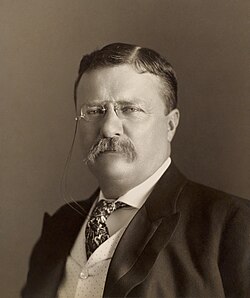📖 Presidential Profile
Comprehensive overview of leadership, policies, and historical significance
📋 Biography & Political Journey
The Accidental President’s Rise to Power
Theodore Roosevelt assumed the presidency in September 1901 following the assassination of William McKinley, becoming the youngest president in American history at age 42. His ascension marked a dramatic shift in presidential style and substance. Roosevelt brought unprecedented energy and charisma to the office, transforming the presidency into what he called a “bully pulpit” for advocating progressive reforms.
Roosevelt’s early presidency was defined by his aggressive approach to corporate monopolies. His administration pursued Northern Securities Company in a landmark antitrust case, establishing the precedent that even the most powerful corporations were subject to federal regulation. This “trust-busting” campaign resonated with ordinary Americans who felt victimized by corporate excess.
Progressive Reforms and Conservation Legacy
The Roosevelt administration championed numerous progressive causes, including pure food and drug legislation, railroad regulation, and labor rights. The Pure Food and Drug Act and Meat Inspection Act of 1906 represented federal government’s first major intervention in consumer protection, largely inspired by Upton Sinclair’s exposé “The Jungle.”
Roosevelt’s conservation legacy remains perhaps his most enduring achievement. He established 150 national forests, 51 federal bird reserves, 5 national parks, and 18 national monuments, protecting approximately 230 million acres of public land. His creation of the U.S. Forest Service under Gifford Pinchot institutionalized conservation as a federal priority. “Conservation is a great moral issue, for it involves the patriotic duty of insuring the safety and continuance of the nation,” Roosevelt declared.
Foreign Policy and Imperial Ambitions
Roosevelt’s foreign policy embodied his famous maxim: “Speak softly and carry a big stick.” His administration oversaw American emergence as a global power, most notably through the construction of the Panama Canal. Roosevelt’s corollary to the Monroe Doctrine asserted American right to intervene in Latin American affairs, establishing a precedent for future interventions.
His mediation of the Russo-Japanese War earned him the Nobel Peace Prize in 1906, making him the first American president to receive this honor. However, his approach to international relations often reflected the imperial attitudes of his era, viewing American expansion as both inevitable and beneficial.
Controversial Racial Policies and Military Interventions
Despite his progressive reputation, Roosevelt’s racial policies revealed the limitations of early 20th-century progressivism. His handling of the Brownsville Affair in 1906, where he dishonorably discharged an entire battalion of African American soldiers without trial, remains a significant stain on his record. The decision reflected prevailing racial prejudices and damaged his relationship with African American voters.
Roosevelt’s intervention in the Dominican Republic and his role in Panamanian independence demonstrated his willingness to use military force to advance American interests. Critics argued that his “Big Stick” diplomacy often resembled imperial bullying, particularly toward smaller Latin American nations.
The Teddy Bear and Presidential Anecdotes
One of the most enduring symbols associated with Roosevelt emerged from a 1902 hunting trip in Mississippi. When Roosevelt refused to shoot a captured bear, considering it unsportsmanlike, the incident was immortalized in a political cartoon. This led to the creation of the “teddy bear,” named in his honor, which became one of America’s most beloved toys.
Roosevelt’s physical courage became legendary when he continued delivering a 90-minute speech in Milwaukee after being shot by an assassin in 1912. The bullet was slowed by his speech manuscript and eyeglass case. “It takes more than that to kill a Bull Moose,” he famously declared to the crowd, referring to his Progressive Party’s nickname.
Humor & Jokes
Roosevelt's Energy
Teddy Roosevelt had so much energy, he made Red Bull look like chamomile tea. Presidential…
Read More →Greatest Wins
🏛️ Pure Food and Drug Act Passage
Roosevelt championed consumer protection legislation that eliminated dangerous food additives and fraudulent medicines, revolutionizing American…
Read More →Epic Fails
🏫 Japanese School Segregation Crisis and Gentleman's Agreement
Roosevelt's handling of San Francisco's Japanese school segregation revealed his accommodation of racial discrimination.
Read More →